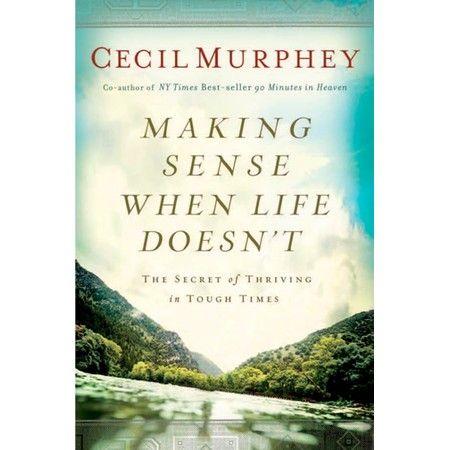My Comments:
This is really more of a post about my life than this book, but good books are supposed to make you examine your own life. Some of my readers know, my nineteen year old son is on the autism spectrum. I've always said it was on the mild end, and I guess that's true, but honestly, right now, I don't know. After graduating from high school last spring (a year late, but with a regular diploma) he said he was tired of school and wanted to get a job. We live near a major street with fast food places, grocery stores etc., so I sent him out to pound the pavement. He returned, saying that they told him to apply on-line. At the same time we were working with the State to get him into a job placement program for the handicapped. The idea is that they would help him find a job and then provide a job coach to teach him the job,and then phase out. The state contracts with private companies to provide this service. We chose the company my son wanted to use, not the one I would have selected, and nothing happened all summer. I was not concerned because I know the economy isn't the greatest and a lot of my daughter's friends who were looking for work were not finding it.
When school started in the fall, I told him that since he had not found a job, he had to go to school. I took him to the local community college and signed him up for the program he chose. If I had just dropped him off with a credit card, I doubt he would have figured out the system well enough to make it through registration. I read in the paper that about 70% of the students at the community college were required to take remedial classes. My son was not in that number. However, if he returned this semester, he'd be on academic probation and would need to retake at least two of his three classes. The really frustrating thing is though, that looking at his grades,he got A's and B's on the work he turned in; he got bad grades because it took me figuring out how the school's computer system worked, among other things, to get him to the point of being able to hand in his work--but even after that was taken care of, this kid who was at school from 8-5 two days a week, and only taking nine hours, chose not to complete all his assignments.
Shortly before Christmas we changed employment vendors since the previous ones did not appear to have done anything. The new ones evaluated him and told me that he was not ready to get a job--that he lacked the basic skills of listening to the boss and doing it the boss' way, and sticking with it until it was done. The recommended a program to teach those skills, but that program can only be bought with money from a different pot and we are only in the process of applying for it (applying for all these programs is practically a full-time job). That money won't come through for 3-4 months, assuming things go our way. Until then, I'm trying to keep him busy with housework and whatever else I can cook up.
What does all that have to do with this book? The book is about an autistic young woman. What video games are to my son,cooking is to her. It is what she does, what she loves, what she thinks about, what she talks about. The book takes place in the weeks following her parents' accidental death. It is told in the first person and she tells us about her sister trying to get her to sell the house and move in with her--which she does not want to do. She also talks about her sister's young daughter, who may be autistic too--and another autistic family member.
Ginny, the autistic woman, has been sheltered all her life (and yes, in some ways, we shelter my son--like navigating college registration for him) and is trying to figure out how to deal with life on her own. That's the hardest part of parenting a kid like mine--how much do you push, how much do you allow, how much do you shelter. We have chosen to allow him to drive--and shortly after he got his license he was in an accident. Did we make the right choice? I don't know-I heard lots of stories about lots of kids who got in wrecks shortly after they started driving. We've limited his driving, but he still drives;another accident and we'll have to reconsider. I told him to take the bus to go pay his ticket. He called me, upset that the bus stop was not where he thought it should be. He got my voicemail, and by the time I called him back,he had figured it out. He doesn't want to work--he is perfectly happy living as a twelve year old on summer vacation. While it is nice having a live-in housekeeper, my goal is for him to be gainfully employed. My goal is also to make it possible for him to survive without us, and without being a burned on his sisters. I don't know if we'll be able to achieve the second goal.
I liked reading what being autistic is like, from Ginny's point of view, though, as she notes, it is a spectrum and different people react differently. I liked it when Ginny realized that her mother was a major reason she was able to do what she could--the reason she hadn't been held back in school or shunted into special ed classes devoid of academic work. I've put a lot of work into my son's education and yes, I wonder if I shouldn't have pushed harder, or run more interference at the community college,but at some point he has to stand on his own.
Yea, its been a disappointing couple of months and while The Kitchen Daughter doesn't say that it will all be perfect in the end, it does remind me that my son is a great guy with his own talents and that once we find them and give him the support he needs to transition to adulthood, he has a grand adventure awaiting him, even if he'd rather stay home.

















